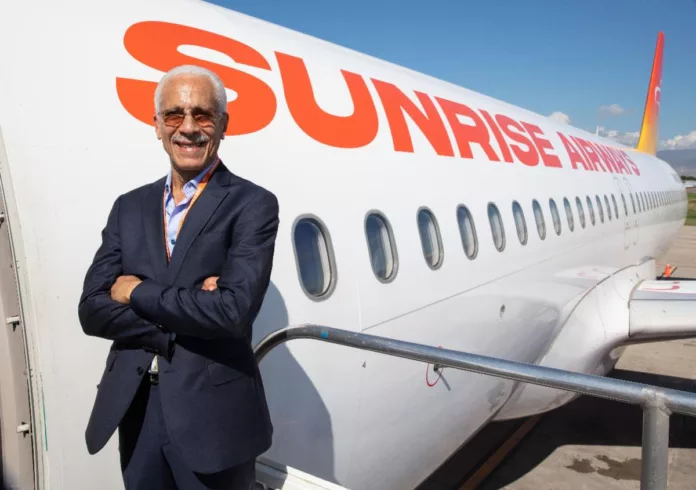Philippe Bayard, CEO of Sunrise Airways – Haiti’s hometown airline – has added his voice to the call for reform of the Caribbean’s aviation taxation system, which he believes is hindering the growth of intra-regional air travel.
Despite strong international air route growth and new entrants into the market, Bayard believes the outdated system is acting as a barrier to expanding regional connectivity and economic growth.
“Unfortunately, barriers to growth persist for intra-regional Caribbean air travel. At issue is the outmoded taxation system governing commercial aviation in the Caribbean,” he said. “This system acts as a veritable economic handbrake, preventing expanded intra-regional connectivity and the subsequent boost to GDP from creating new multi-destination leisure and business travel options,” he continued.
Sunrise Airways, headquartered in Port-au-Prince, Haiti, operates regular passenger and charter flights throughout the Caribbean, and advocates for better connections within the region for the benefit of both leisure and business travelers.
Bayard is encouraged by the dialogue among trade groups, Caribbean government officials, and industry partners, such as the Caribbean Hotel and Tourism Association (CHTA) and the Latin American and Caribbean Air Transportation Association (ALTA), and remains optimistic that significant changes can be made, “resulting in more flights better connecting more of our region in line with our ‘One Caribbean’ concept.”
With 180 aviation professionals and a diverse fleet of aircraft, Sunrise Airways operates regularly scheduled passenger service and charter flights and is well-positioned to contribute to the region’s growth. Its fleet of aircraft includes the Jetstream 32; Embraer 120 Brasilia turboprop; Embraer ERJ145 jet; and A320, A321 and A330 equipment.
Currently serving Haiti, Cuba, the Dominican Republic and Guadeloupe, the airline is aiming to expand to Aruba, Curaçao, Kingston (Jamaica), Martinique, Miami, Panama City (Panama), and St. Maarten/St. Martin within the next two years.

